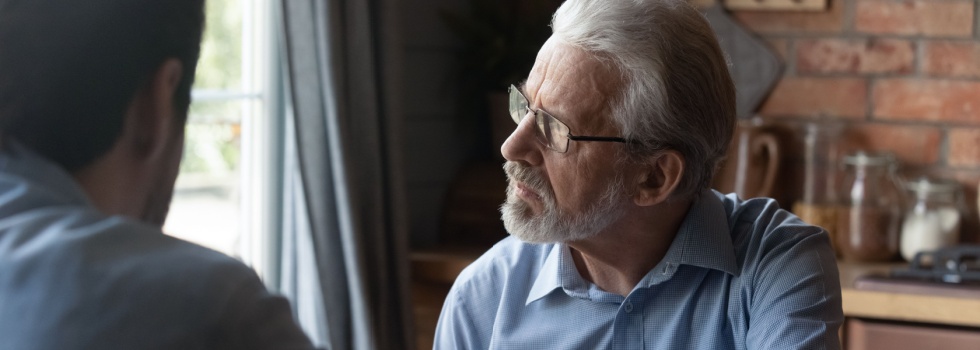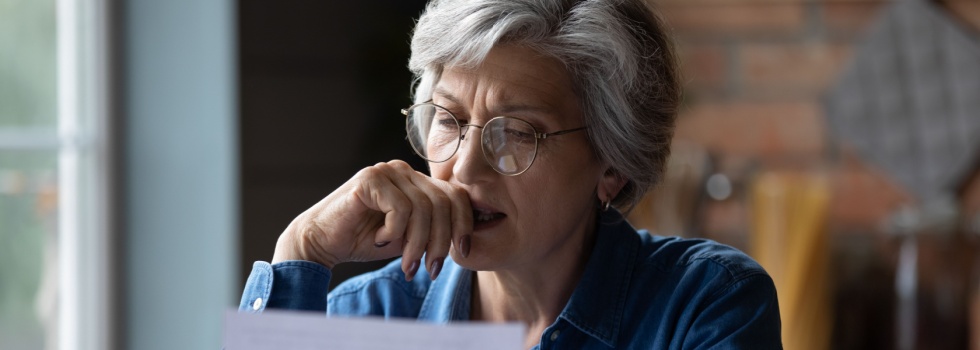
|
I understand that your inbox will be inundated with emails regarding the Covid-19 pandemic, and the last thing you need is a further email from me. However, we are living in interesting times and it is imperative that I keep you updated as things develop over the coming weeks and months, therefore, please forgive me for this further entry into your inbox. Many more are likely to follow, but please remember that you can unsubscribe to these updates at any time by clicking on the link at the end of this article! Various events have happened over the last week or so, the UK Chancellor and other leaders around the world have taken measures to get things under control and bolster their respective economies. These measures have not totally resolved concerns, but things do appear slightly more settled than they were just over a week ago. Will these actions work? No one knows, but action is being taken and I’m confident things will be resolved over the coming months. The purpose of this update is to provide further reassurance regarding your own investment portfolio and to advise on Otter Financial Services’ operational procedures over the coming weeks. Facing the bear market of 2020As the world deals with a global pandemic, our country and our world face a difficult time. There is plenty of commentary on Covid-19, both from qualified commentators and from non-experts that may be spreading rumours that cause widespread panic across their communities. I have no expertise in public health care matters, so these comments are entirely from the perceptive of history, liberal capitalism and the capital markets. Over the last few weeks, stock markets across the world fell, recovered briefly and then fell again. At the time of writing, the FTSE All-World Index, a collection of 3,000 of the world’s largest companies, is down nearly 13%, but at one stage was down nearly 20%. Think about that for a second: a group of the best and the brightest companies in the history of capitalism were worth about 20% less than they were a month before! After over a decade of almost uninterrupted advance, the global stock markets were officially in bear territory. I know that this market feels a little different to the other ones, however, in many ways, each bear market always feels very different than the last. This one doesn’t feel like the 2008/09 global financial crisis, which also felt very different from the technology bubble of 2000 and all the other bear markets before it. However, we talked about this, we are always talking about this – remember?The reality is, this type of decline in the capital market is a feature, not a bug. It’s part and parcel of investing. While no one could have known or predicted the exact trigger for the most recent decline, over the past few years, we have prepared ourselves and you (our clients) for this. |
 |
|
It may look and feel different but the latest decline, so far, is well within the range of historical scenarios. We have written and spoken to you on numerous occasions in the past, and we always stress test your long-term financial plan. This includes using a wide range of scenarios including one that accounts for several bear markets along the way. We knew that the market decline was only a matter of when, not if. We had no way of knowing, of course, that it would be precipitated by a global pandemic. This is no time to make drastic changes to your financial plan or your investment strategy. If you were invested right in the first place, there’s no need to change track. Jumping off the ship in these turbulent waters will only cause more harm than good. How long will the current bear market of 2020 last? And how deep will it fall?In all honesty, I have no idea, and neither does anyone else. And that’s totally fine. If it’s any comfort, the average bear market for UK equities lasts 20 months and bottoms out after a 37% decline! So far, we have been circa 30% down, and we are only one-month in. We could be heading for a long painful journey, but then again, how should I know? Our message has always been to prepare for scenarios that are way worse than the average – the bear market of 1972/74 bottomed out at -67% peak-to-through. All this information is shown in the charts included in this article, which have been supplied by our friends at Timelineapp Ltd. |
 |
|
Early signs suggest the current decline has been sharper than the previous ones. There is some evidence to show that the speed and depth of market declines correlate with the speed and depth of the subsequent rebound. Eminent financial historian Professor William Goetzmann (Yale University) examined what happens after serious market declines in a comprehensive study that spans over 100 global stock markets over three centuries. He concluded: “The probability of a large positive return is higher following a decline in the market of at least -50%. Returns following a severe crash are on average more than 10% higher than those following a market gain.” One thing that virtually all bear markets have in common though is they eventually come to an end. As I have also said in many previous blogs and emails, this too, my friends, shall pass. And when it does, the capital markets, not just here in the UK but around the world, will resume its permanent advance. But how?I know there’s a lot of fear out there (mainly driven by the mainstream media). There are doubts over the different approaches taken by governments around the world. There are serious concerns over the likely impact on families, jobs and our collective way of life. Subsequently, there is a fair amount of doom-mongering, predicting the end of life as we know it. This is only human. Only it is wrong! Other than my reliance on the weight of history, I have no idea exactly how this might turn out. What I do have, is an unflinching faith in our collective ingenuity – expressed through science, art and capitalism – to defeat even the biggest of challenges we face. In my lifetime, we defeated SARS, H1N1 and Ebola, to name but a few. We will defeat this too. I do not doubt that. So, what does this matter to you – diversification, diversification, diversification!In all the hysteria, we must not forget one of the first conversations we had at the start of our relationship and one we have had many times since. How much risk are you prepared to take, and how much are you able to stomach? The point of building a well-diversified portfolio, both geographically and by asset class, is to reduce the exposure to market downturns like this. At the time of writing, our most common portfolio split evenly between fixed income and equity, and then diversified by global market cap has suffered a year-to-date performance loss of – 15%. But this is nowhere near the losses that equity markets around the world have seen. So, the next time you watch the news and believe you have lost ‘over 20%’ because the FTSE did, remember why we constructed your individual, globally diversified portfolio in the first place. That’s right, to deal with moments in time like now! In times like this, I find it particularly helpful to draw on the work of legendary scholar of international public health Professor Hans Rosling. His book Factfulness is a must-read, particularly right now, but I want to draw out a few words that speak to me as I think about the current challenge that our world faces: “Critical thinking is always difficult, but it’s almost impossible when we are scared. There’s no room for facts when our minds are occupied by fear. “Remember that the media and activists rely on drama to grab your attention. Remember that negative stories are more dramatic than neutral or positive ones. Remember how simple it is to construct a story of crisis from a temporary dip pulled out of its context of a long-term improvement. Remember that we live in a connected and transparent world where reporting about suffering is better than it has ever been before. When you hear about something terrible, calm yourself by asking, if there had been an equally large positive improvement, would I have heard about that? Even if there had been hundreds of larger improvements, would I have heard? Keep in mind that the positive changes may be more common, but they don’t find you. You need to find them. “Think about the world. War, violence, natural disasters, man-made disasters, corruption. Things are bad, and it feels like they are getting worse, right? The rich are getting richer and the poor are getting poorer; and the number of poor just keeps increasing; and we will soon run out of resources unless we do something drastic. At least that’s the picture that most Westerners see in the media and carry around in their heads. I call it the overdramatic worldview. It’s stressful and misleading. In fact, the vast majority of the world’s population lives somewhere in the middle of the income scale. Perhaps they are not what we think of as middle class, but they are not living in extreme poverty. Their girls go to school, their children get vaccinated, they live in two-child families, and they want to go abroad on holiday, not as refugees. Step-by-step, year-by-year, the world is improving. Not on every single measure every single year, but as a rule. Though the world faces huge challenges, we have made tremendous progress. This is the fact-based worldview. “People often call me an optimist, because I show them the enormous progress they didn’t know about. That makes me angry. I’m not an optimist. That makes me sound naive. I’m a very serious ‘possibilist’. That’s something I made up. It means someone who neither hopes without reason, nor fears without reason, someone who constantly resists the overdramatic worldview. As a possibilist, I see all this progress, and it fills me with conviction and hope that further progress is possible. This is not optimistic. It is having a clear and reasonable idea about how things are. It is having a worldview that is constructive and useful. Professor Hans Rosling’s fascinating videos can be found on YouTube here. Summary and the ‘new norm’So, to sum up, based on the last 100 years of data, this is not the end of capitalism as we know it. Things will pick up, life will revert to normal, and we will return to our daily routines. At this time, the values of companies around the world have temporarily declined. However, they will rebound long before it is apparent that the global economies are recovering. This is because stock markets are based on anticipation of what the future holds. Yes, they get knocked off track by unforeseen events (such as Sars, Ebola and Covid-19). But in the long-term, stock markets are on a relentless permanent advance. Capital will be deployed effectively, and patient long-term investors will be rewarded for their resilience. We are in this together and my money is invested in the same way as clients’ money, I am in the same model portfolios, albeit I am invested in our highest risk portfolio and exposed to 100% equities. That said, I understand we are human and all fearful at this moment, please be reassured that I understand your fear and I will do all I can to safeguard your financial position. I am here for you always – and your friends and colleaguesI suspect during this time of crisis, many people are left alone, no one to speak with and suddenly their financial adviser is not returning calls or replying to emails! Worst still they are advising people to bail out of the markets and ‘hide’ in cash. This is one of the gravest of investment mistakes, selling low in a declining market and then missing out on the recovery. I will not let you commit to this crime. I am here for you no matter what and happy to talk matters through at any time. You may also have friends, family, or colleagues who wish to speak with a financial planner at this unprecedented time. If so, please do pass on my details. That said, in line with government advice, we are social distancing at present and have taken the decision to close the office. However, we have everything we need to work from home and can be contacted as normal by email or phone. Alternatively, I can hold a video call using a platform called Zoom. Instructions on how to use Zoom can be found here. We intend to operate our business as normal, therefore, we will make contact at the appropriate time to arrange annual review meetings. In the meantime, should you wish to speak with me, please telephone to book an appointment, or you can book one directly using to my calendar showing my availability here. Humans are remarkable. Humanity is remarkable. Our capacity for resilience and ingenuity is insatiable. We will get through this together. I do not know when this current catastrophe will pass, but what I do know is that it will pass and that is all that matters. With the extra free time at home, please don’t stress too much about your portfolio, leave that to me. Just let me know whenever you want to speak, and I will do all I can to make time. Should you not be able to get me using the normal contact methods, my mobile number is 07530 001030. Stay safe, stay strong and stay sane. |




